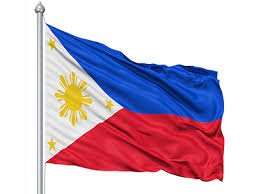.jpeg)
image source
Philippine National Flag
A question bewildered me that led me to write about our National Flag - the Philippine Flag. A question that ponders on the importance or significance of our National Flag. But the real question is - What is the true meaning and significance of our flag and does it still applies or prevail in today's times ?
Every 12th of June in the Philippines, one would see almost everywhere, in the streets, malls, and even on cars, our country's colors (blue, red, and white) and other symbols we see on our National Flag. On this day centuries ago, at Kawit, Cavite, the first Philippine President Emilio Aguinaldo declared Independence be Day throughout the whole Philippine Archipelago from the occupation and colonization of other countries.
Our history abounds with stories of wars and uprising against those who wanted to own and occupy our motherland. Three (3) colonizers generations of colonization led the Filipinos to organize themselves into groups or organizations with the soe purpose of driving away the foreign flags that usurped the rights of their forefathers. These organizations created their own flags to identify themselves.
A lot of flags has been waved during these wars and uprisings. Many say that through these flags that our current National Flag has evolved.

image source

image source
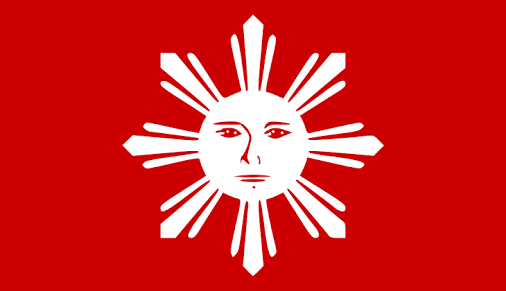.png) image source
image source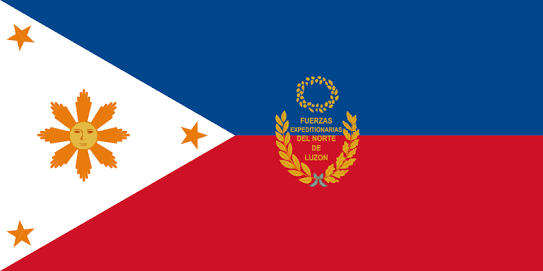.png) image source
image sourceIt has been said that evolution is not the correct word to use or say on the premise that the design of our current National Flag did not emanate from the flag of the Katipuneros. It does not symbolize, so they say, the totality of our current National Flag.
According to Professor Augusto De Viana who is the Chair of UST's History Department, the Katipunan Flag cannot be considered as a Philippine National Flag. The Katipunan is just an organization and thus their flags pertains to the evolution of the flags of their organization, from it's first design to the last. The organization, or the Katipuneros, were using a flag to distinctly identify their organization.
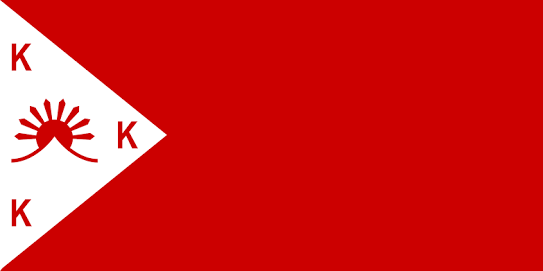.png) image source
image source The Katipuneros had a lot of flags with different design and appearance. One such flag was that designed by Gen. Pio del Pilar that somehow resembles our current National Flag. It has a white triangle that has the letter "K" emblazoned on each of the three corners of the triangle. It also has the rays of the sun that is on top of a mountain that symbolizes a voctorious flag.
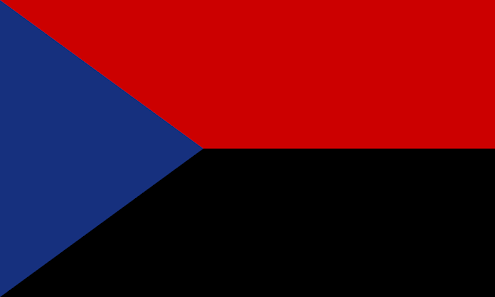.png)
image source
The next flag of the Katipuneros, after the one conceptualized by Gen. Pio del Pilar, was said to be the first flag that utilized three (3) colors - Red, Blue, and Black. This flag was conceptualized by Gregorio del Pilar and was patterned after the national flag of Cuba which symbolizes the struggle for freedom and independence from Spanish colonization of our motherland. This flag was aved at the infamous Battle of Tirad Pass.
There were numerous flags uses during the uprising of the Filipinos against the Spaniards and even with other countries that tried to occupy our motherland. All of these flags were all proudly Philippine made .
Did you know that our current national flag's design was made in Hong Kong? Yes, you heard me right. It was designed in Hong Kong. This was brought about by one of the conditions set forth in the "Biak na Bato" Convention where the leaders of the rebellion more popularly known as the Hong Kong Junta, was tasked to travel to Hong Kong.
When the Hong Kong junta went to Hongkong, a Filipino Diplomat by name of Felipe Agoncillo was there. Agoncillo was with his wife, Marcella, and his daughter, Lorencia. Also in Hong Kong at that time was Delfina Hermoza who was said to be Rizal's wife.
.jpeg)
image source
These three ladies, Marcella, Lorencia, and Delfina, was said to be the ones who had stitched our current flag. It had four (4) colors - Red, White, Blue, and Yellow.
These colors symbolizes the following:
Red - Bravery and Gallantry
White - Unity and Equality
Blue - Freedom, Truth, and Justice
Yellow - independence
Emilio Aguinaldo at that time believed that the new Republic of the Philippines should be symbolized by something - a National Flag and a National Anthem. Thus on his return home to the Philippines from Hong Kong, he had with him the first National Flag of the Republic of the Philippines which he himself has designed.
The similarities in color of our national flag and that of the United States of America was brought about by a proclamation of Ambrocio Ranzares Bautista that acknowledged the help of the Americans in our struggle and fight against the Spaniards during their colonization of our country.

image source
We have been misled by our history books about the symbolism of the eight rays of the sun emblazoned on the white triangle of our national flag. It is not true that those eight rays represents the first eight provinces - Manila, Pampanga, Bulacan, Batangas, Nueva Ecija, Cavite, Laguna, and Tarlac - that revolted against Spanish rule. Rather it represents the first eight provinces that were affected by Martial Law when the 1896 revolution was ignited by General Luna Blanco on August 30, 1896.
.jpeg)
image source
Are you one of those who believes that the first time our current flag was waved was on June 12, 1898 at Kawit, Cavite by no less than Emilio Aguinaldo? If you are, then you are one of the many who are mistaken. The first time our flag was waved was on May 28, 1898 during the so called Battle of Alapan. That is the rational why May 28 was declared as National Flag Day.
.jpeg)
image source
The Philippine National Flag was waved for the second time since it was brought back from Hong Kong by Emiluo Aguinaldo on June 12, 1898. This time it waved not with the sounds of gunshots but rather to the tune of a marching song "Marcha Fenal de Filipinas".
On this same day, not only did we declared our Independence, we also did display our national colors getting inspiration from the United States. But this Independence was short-lived. Yes,we have freed ourselves from the Spaniards with the help of the Americans. Little did we know that our ally against the Spaniards would become our new oppressors and colonizers.
On September 6, 1907, the Americans enacted Act 1696 otherwise known as the Flag Law. This act prohibits the use and/or public display of any item that would symbolize the Independence of our country. A violation of the said Act would mean a fine and/or imprisonment.
Act 1696 was implemented for 12 long years. It was only in 1919 when then Governor General Francis Burton Harrison rescinded Act 1696. Hence, the symbol of our independence - our national flag - was once again proudly displayed and waved despite still being under American Rule. But because of the lack of policy and norms, our national flag then had different designs and different colors.
.png)
image source
And according to Executive Oder XXII 1986 under the leadership of President Manuel L. Quezon, the designed being used in our flag that has been raised in Kawit Cavite has been reinforced. The faced in the sun has been removed, and they chose navy blue as the design for the blue hue part of our flag.

image source
But during the Japanese era, they said that Emilio Aguinaldo commanded that they reverse the use of the flag colors where the red will be at the top and the blue will be at the bottom.That symbolized the war.
But like what happened when the Americans first land to our country, the Japanese prevented the use of the flag. Nevertheless, it used of the flag was reinstated immediately through the building of the 2nd republic under the leadership of Jose P. Laurel on October 14, 1943.
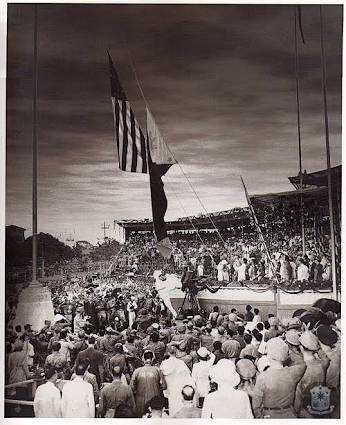.jpeg)
image source
When the World War 2 ended, more than a year after the Japenese has been defeated, the 3rd Republic has been established on July 4, 1946 under the leadership of Manuel Roxas. During this time, the American flag was put down while the Philippine flag has been raised in Luneta.
Popstar Madonna was on the news before when she used our flag as a costume. She was bashed by our government and countrymen.
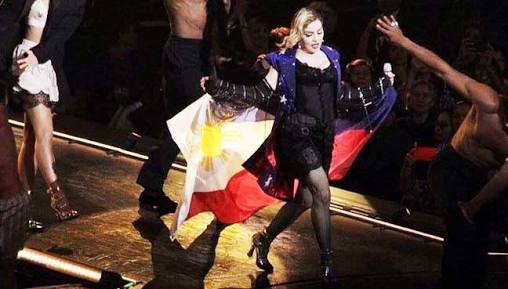.jpeg)
image source
On the other hand, there were also people who said that our government just overreacted. But under Section 4 of RA No. 8491, the used of our flag as a costume is strictly prohibited. It is even prohibited to burn the flag as freedom of expression.
In the Philippines, the flag is only allowed to be burned if it is already torn or faded, and only the Boy Scouts are allowed to burn and bury it (Take not, it will be buried not the be thrown away anywhere.
When you burn the flag, it means you hate the Philippines and you are fighting the whole nation. According to Professor Xiao Chua , Department of History ( DLSU )
.jpeg)
image source
Before the issue with popstar Madonna, one student was trending because he used our flag as a mop. Because of his actions, he was expelled in school.
.jpeg)
image source
There's also another one who has an issue using our flag, this one transgender Maria Sofia who' sung the tune of our national anthem while he is touching and showing his private parts. His actions provoke our government to block him from going back to the country.
.jpeg)
image source
Though there were people who seem to neglect the importance of our flag, there are also people who have so much care for our flag. Just like the Grade 6 student from Malinay, Albay. He was seen and photographed saving our flag from the flood during Typhoon Juaning.
Loving and respecting our flag is like loving our countrymen, family, loved one and oneself because doing this shows the essence of our history.
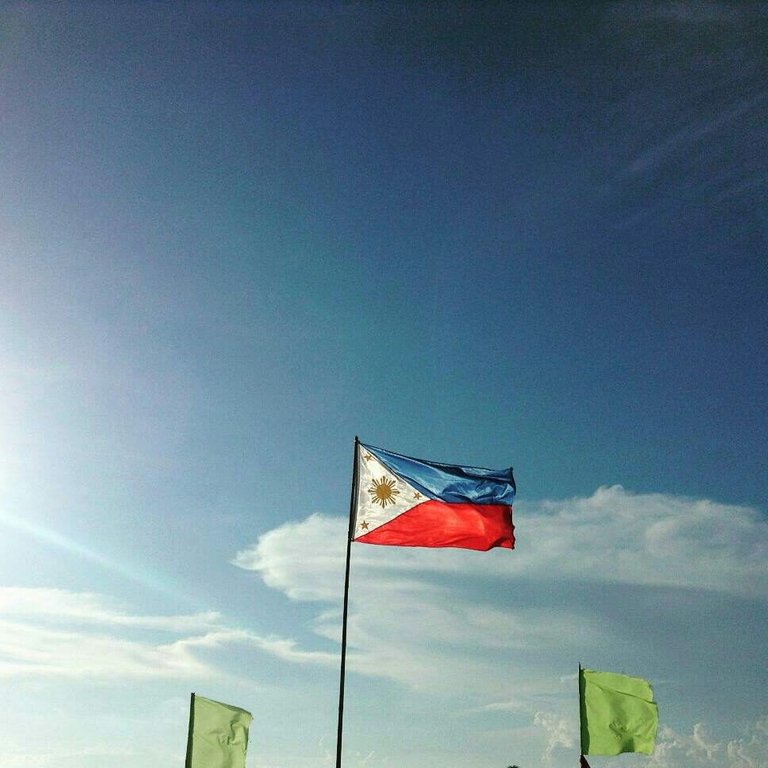
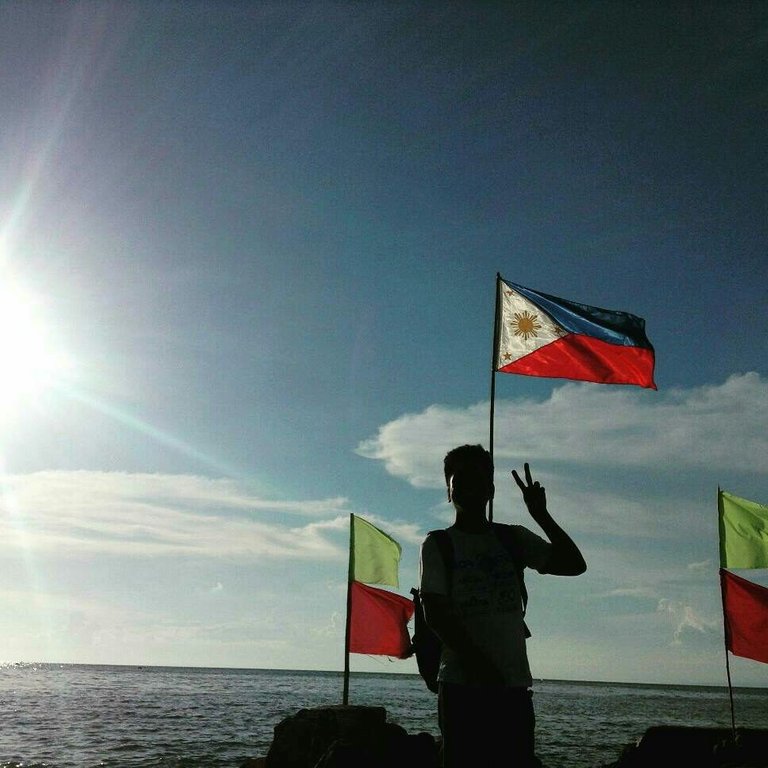
If our flag is destroyed, it also symbolizes that our dignity as a nation has also been crushed.
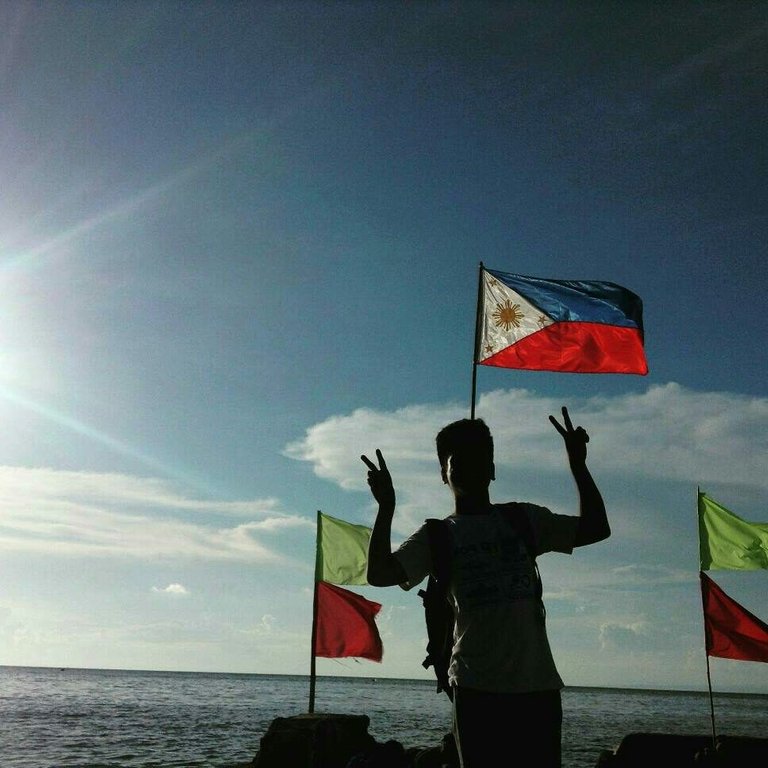
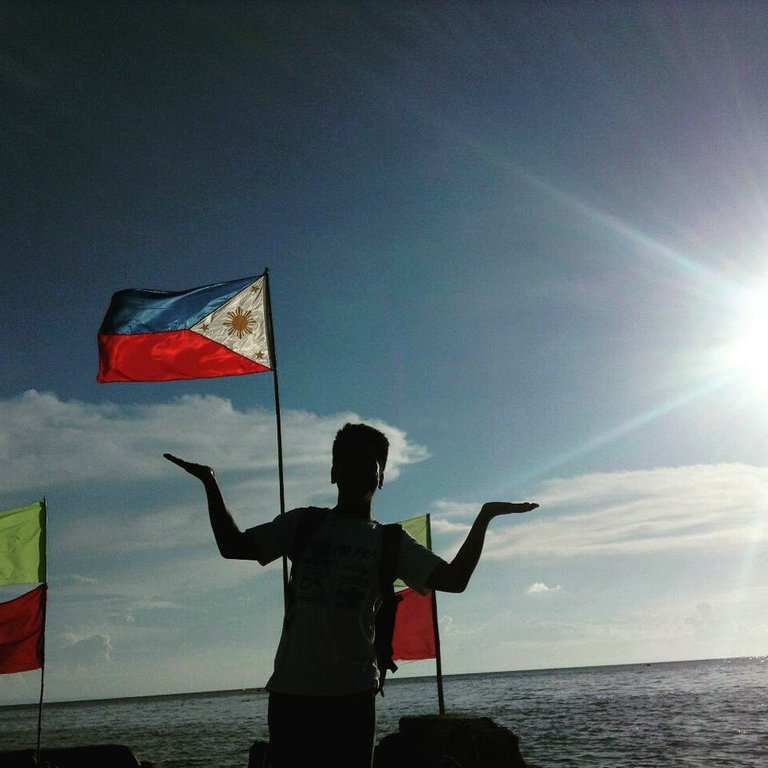
It might be like a poem when we think about it but it was made deeply.
Remember, when we sing with one heart, one voice, one hymn, one vision or in short oneness, we can feel that we are together in one spirit who show love for our flag and country. If we are united, we are going to press together for progress.
If it might be a simple poem, this is the epitomy of sacrificing blood, sweat and tears from our thousands of heroes and martyrs who even lost their lives to prove that no foreigner could ever put our nation to slavery.
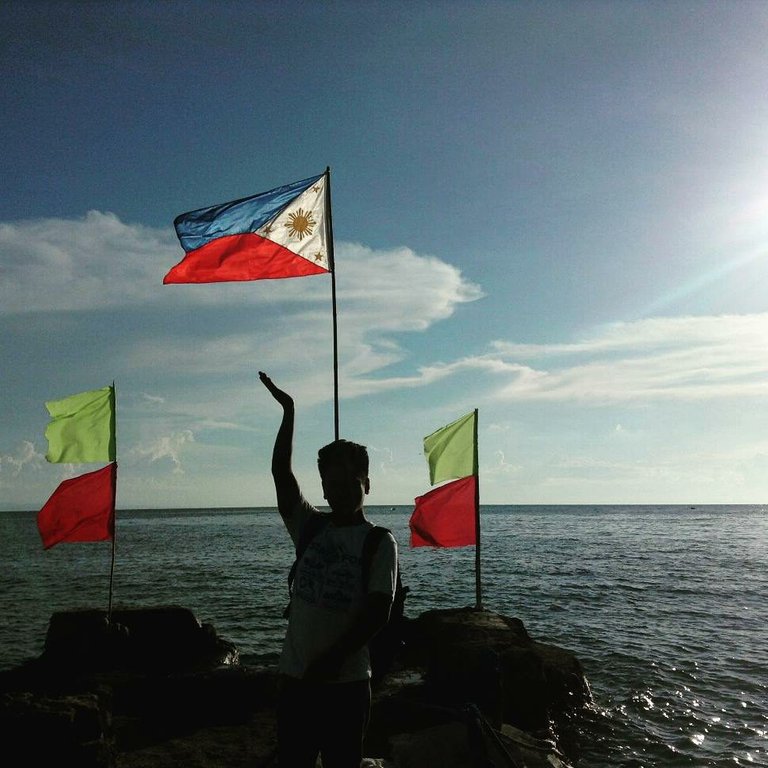
And that's the story behind our flag.
MABUHAY PILIPINAS !
MABUHAY ANG ATING PAMBANSANG WATAWAT !
Reference:
https://www.pinoyedition.com/maikling-kwento/ang-kasaysayan-ng-ating-pambansang-watawat/
http://www.gmanetwork.com/news/opinion/content/494378/kasaysayan-ang-orihinal-na-araw-ng-ating-bandila-ay-may-mukha/story/
http://www.angelfire.com/journal2/philippinehistory/watawat.htm
Nice post but allow me to give you a tip. The 1st tag of a post should match on the content, and on this post, the 1st tag is philippines. You can use steemph as secondary tag.
This is very important because you might be facing issues with steemcleaners in the future if you keep on doing this, unless your post has something to do with steemph.
Thank you very much @bayanihan for that tip . Can I still edit the tag incase ?
No, 1st tag could not be edited. Just do it on your future post.
upvote, follow & comment.
thank you @soumit420 i already follow you hope to see you very soon :)
Makahilak man sab ta ani @miggy148 grabi tung bata ayy. Iya jud gi save ang flag. Hope to see you on your next blog.
Dapat in ana jud ka aubriel hahaha ! pahalagahan natin ang ating watawat :)
Nicely tailored post bro. Keep up the good work. very inspiring and life moving. keep steeming. done upvoting brother.
Thank you bro :)
oh dear very nice post